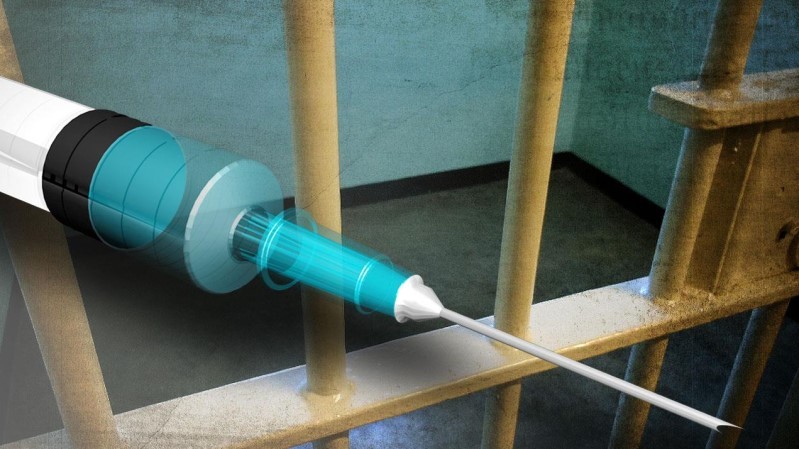ATLANTA (AP) Georgia doesn't have to reveal information about its execution drug to two Mississippi death row inmates, a federal judge in Atlanta has ruled.
The inmates, Richard Jordan and Ricky Chase, sought the information as part of a legal challenge to Mississippi's three-drug execution protocol. U.S. District Judge J. Clay Fuller wrote in an order Thursday that Georgia law prohibits the release of the information and granted the state's request to quash the inmates' subpoena.
Jim Craig, an attorney for Jordan and Chase, said Friday they are still reviewing their options and considering what steps to take next.
The inmates say Mississippi's three-drug method is torturous and unconstitutionally cruel, and they question why that state doesn't adopt a one-drug execution method as other states, including Georgia, Missouri and Texas, have done. They have sought details about how those states obtained execution drugs to meet their legal burden of showing there's a known, available alternative.
Georgia uses the barbiturate pentobarbital made by an undisclosed compounding pharmacy to carry out executions. A 2013 state law says information that identifies participants in an execution or suppliers of drugs and equipment used in an execution is a ``confidential state secret,'' meaning it can't be revealed, not even for a judge's review or under seal in a court case.
The subpoena sent to Georgia requests a wide variety of documents, including those related to the availability of pentobarbital and Georgia's decision to switch from a three-drug protocol to a single-drug protocol using a barbiturate.
Fuller acknowledged in his order that the information sought by the Mississippi inmates is relevant to their quest to challenge Mississippi's three-drug protocol. But he said the information is protected by Georgia's secrecy law and noted that the 11th U.S. Circuit Court of Appeals has repeatedly rejected challenges to that law filed by Georgia death row inmates.
``Simply put, the Eleventh Circuit has uniformly given Georgia's Lethal Injection Secrecy Act an expansive reading, essentially viewing it as creating a total ban on the production of information concerning Georgia's choices in connection with its lethal injection protocol,'' Fuller wrote.
A federal judge in Missouri ruled that the state had to disclose the identity of its execution drug supplier, and that ruling was initially upheld last month by a three-judge panel of the 8th U.S. Circuit Court of Appeals. But after holding a new hearing at the state's request, that same three-judge panel last week reversed itself and ruled the state doesn't have to release the information.
The inmates are also seeking similar information from Texas, but that effort isn't quite as far along, Craig said.
Thursday
April 25th, 2024
10:52AM









